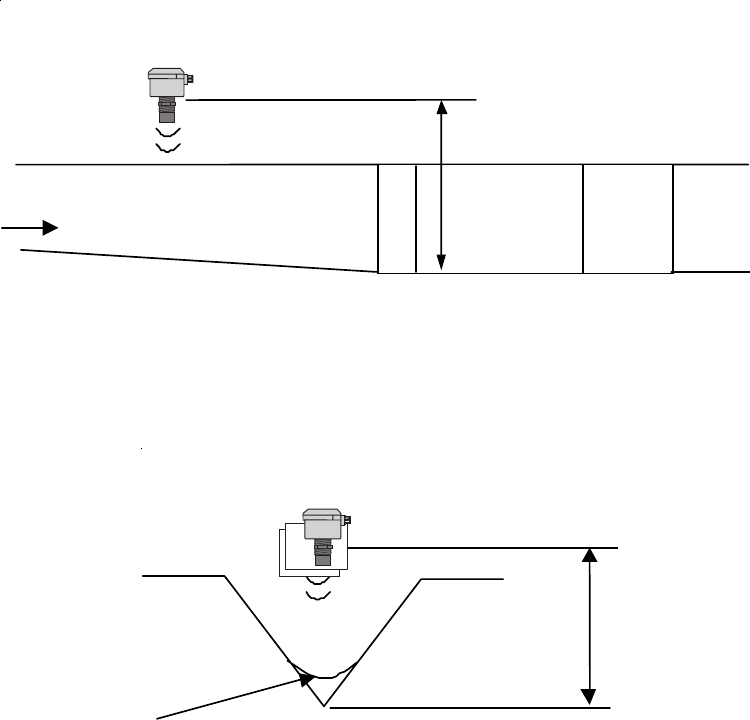
9
IP2046/IM
Nov 2006
• The liquid surface at the point of measurement must have a stable, smooth surface and uniform
approach velocity. It must not be affected by baffles, foam, hydraulic jumps or any other object
likely to cause flow disruption.
• The primary element should be free from any situation where it is likely to ‘drown’ (refer to relevant
standard for further information)
• The MSP400RH transmitter has integral temperature compensation and must be protected at all
times from direct sunlight and any radiated heat.
For maximum accuracy and stability of level measurement reading the transmitter should always be
shrouded to prevent the incidence of direct sunlight.
If the flow structure permits, mount the transmitter within the flow channel or chamber.
Alternatively, the MSP400RH transmitter can accept an input from an external temperature sensor.
See section 3.3.1.
If you are in doubt about any aspect of transmitter installation, contact Mobrey (Service
Division) who will be pleased to advise.
In addition to the above, when setting the bottom reference on a ‘V’ notch weir it is important that the
true invert of the weir is taken and not the meniscus liquid level, which may be 3 to 4mm (1/8”) above
the true invert.
Flow
Channel invert
Primary device (eg.
flume, weir) invert
Transmitter
front face
Meniscus
True invert
Transmitter bottom
reference


















